Since 2013, internet use has increased significantly to at or near saturation levels in all Arab countries in this study; in Jordan the rate approaches that in the U.S. and internet penetration surpasses the U.S. in the UAE, Saudi Arabia, Qatar, and Lebanon. The increase in internet users from 2013 to 2019 is particularly striking in Egypt (53 percentage points), Jordan (41 points), Lebanon (36 points), and Tunisia (27 points since 2014).
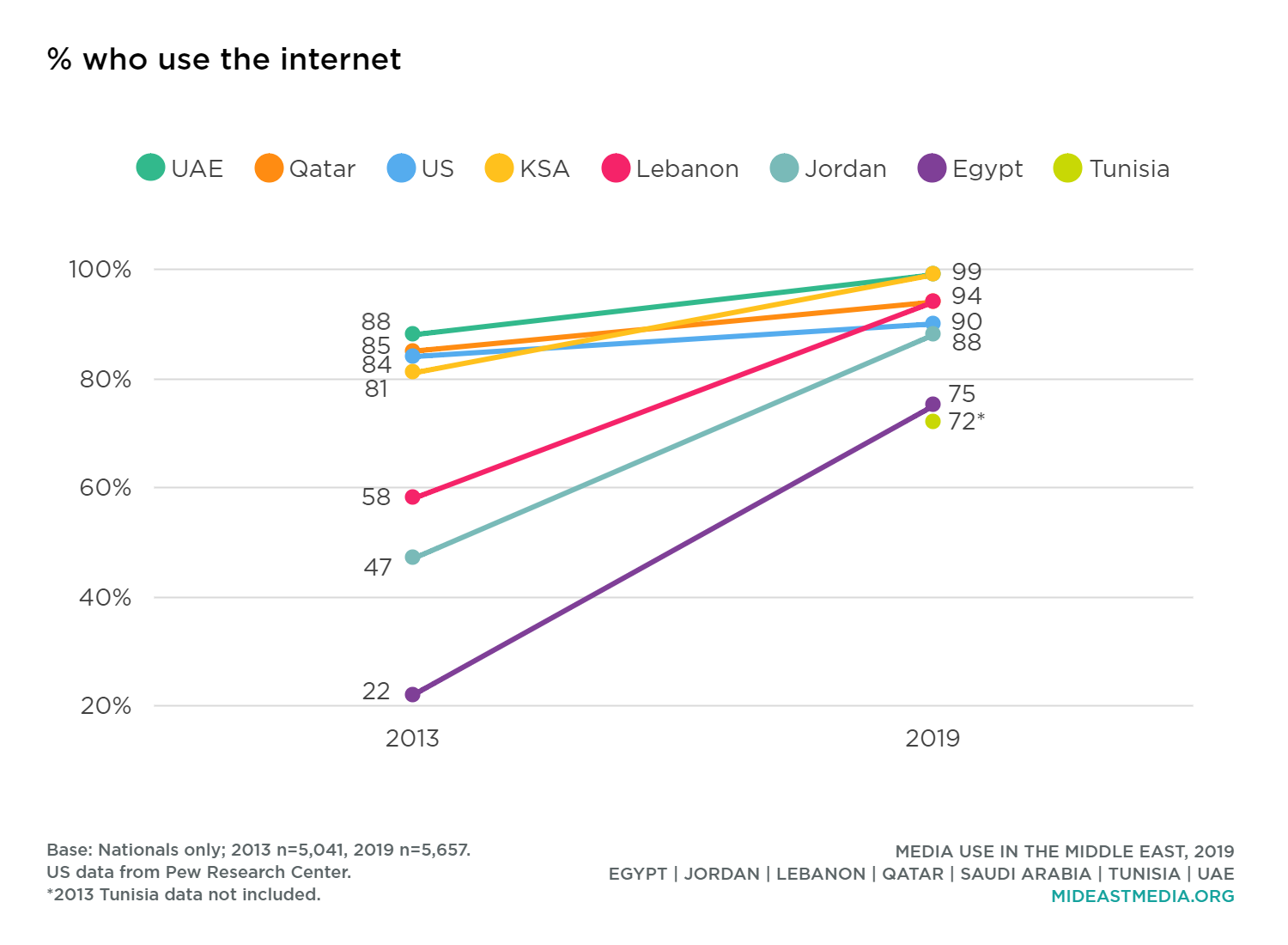
Younger and more highly-educated nationals continue to use the internet at higher rates than older and less-educated respondents, but these gaps are decreasing (age: 18-24 year-olds: 76% in 2013 vs. 97% in 2019, 25-34 year-olds: 68% vs. 94%, 35-44 year-olds: 45% vs. 86%, 45+ year-olds: 23% vs. 65%; education: primary or less: 5% in 2013 vs. 36% in 2019, intermediate: 35% vs. 73%, secondary: 64% vs. 91%, university or higher 83% vs. 96%).
Use of the internet in Arabic tracks with overall internet use, while only about three in 10 nationals in 2019 say they use the internet in English. Additionally, while the percentages of nationals who use the internet and who use the internet in Arabic each increased by about 30 percentage points between 2013 and 2019, the share that uses the internet in English only increased by 10 points.
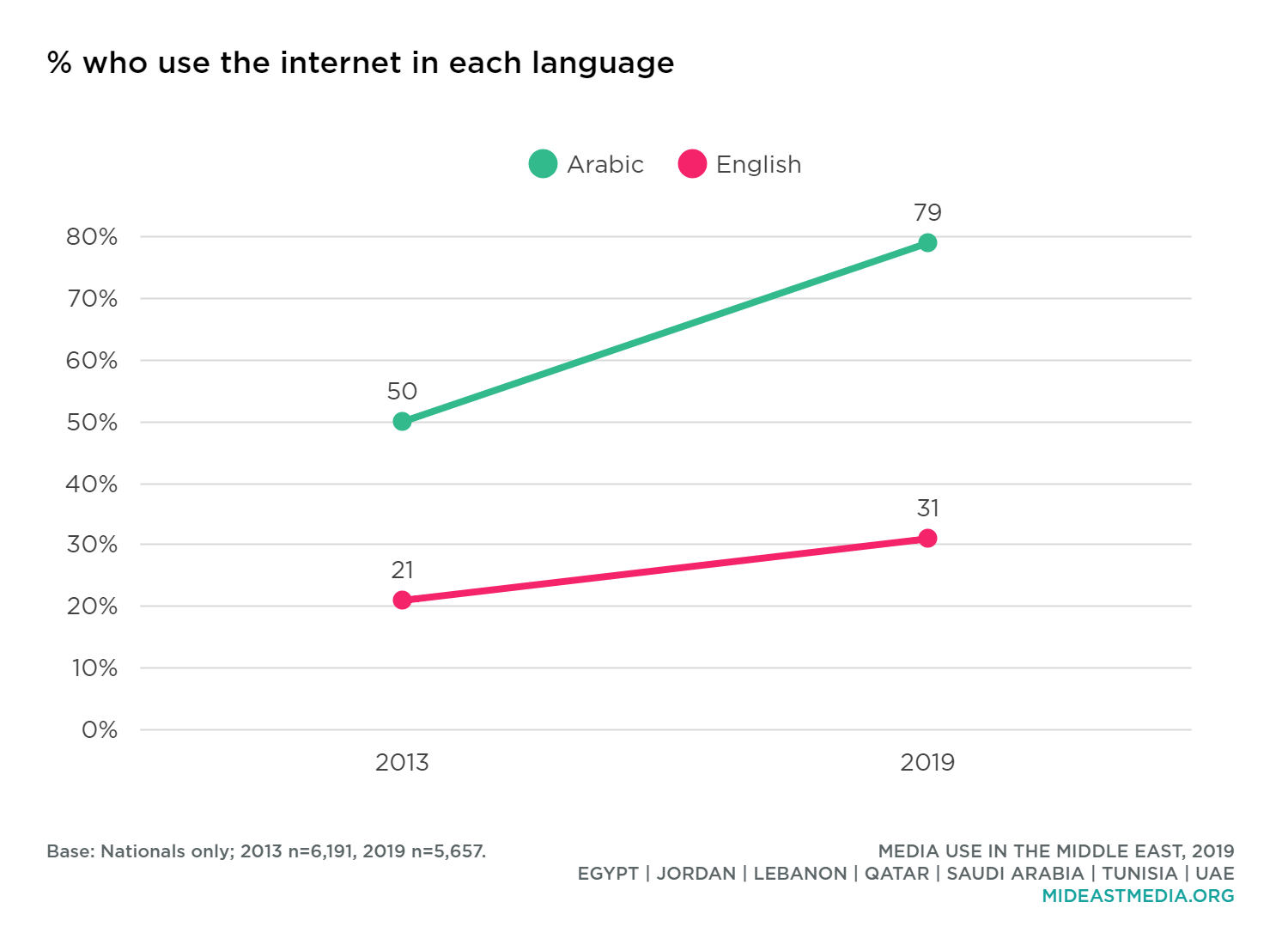
While almost all nationals access Arabic internet content, use of English online varies widely by country, from about half of nationals in Lebanon, Qatar, and the UAE, to one in five Egyptians. Notably, though, compared to 2013, use of English online increased substantially in Egypt, Saudi Arabia, Jordan, and the UAE (use English online: Qatar: 48% in 2013 vs. 48% in 2019; Lebanon: 46% vs. 51%, UAE: 22% vs. 46%, Tunisia: 22% vs. 24%, Jordan: 12% vs. 23%, KSA: 9% vs. 27%, Egypt: 5% vs. 21%).
Men, younger nationals, and those with more education are more likely than their counterparts to use the internet in English (gender: 33% men vs. 28% women; age: 43% 18-24 year-olds, 38% 25-34 year-olds, 27% 35-44 year-olds, 13% 45+ year-olds; education: 2% primary or less, 12% intermediate, 31% secondary, 46% university or higher).
Smartphones are nearly ubiquitous among the Arab nationals surveyed. At least eight in 10 nationals in most countries—seven in 10 in Tunisia—own a smartphone. Smartphone ownership in all countries except Egypt and Tunisia exceeds that in the U.S. (Pew Research Center, 2019). Smartphone ownership in Egypt increased by 23 percentage points between 2017 and 2019.
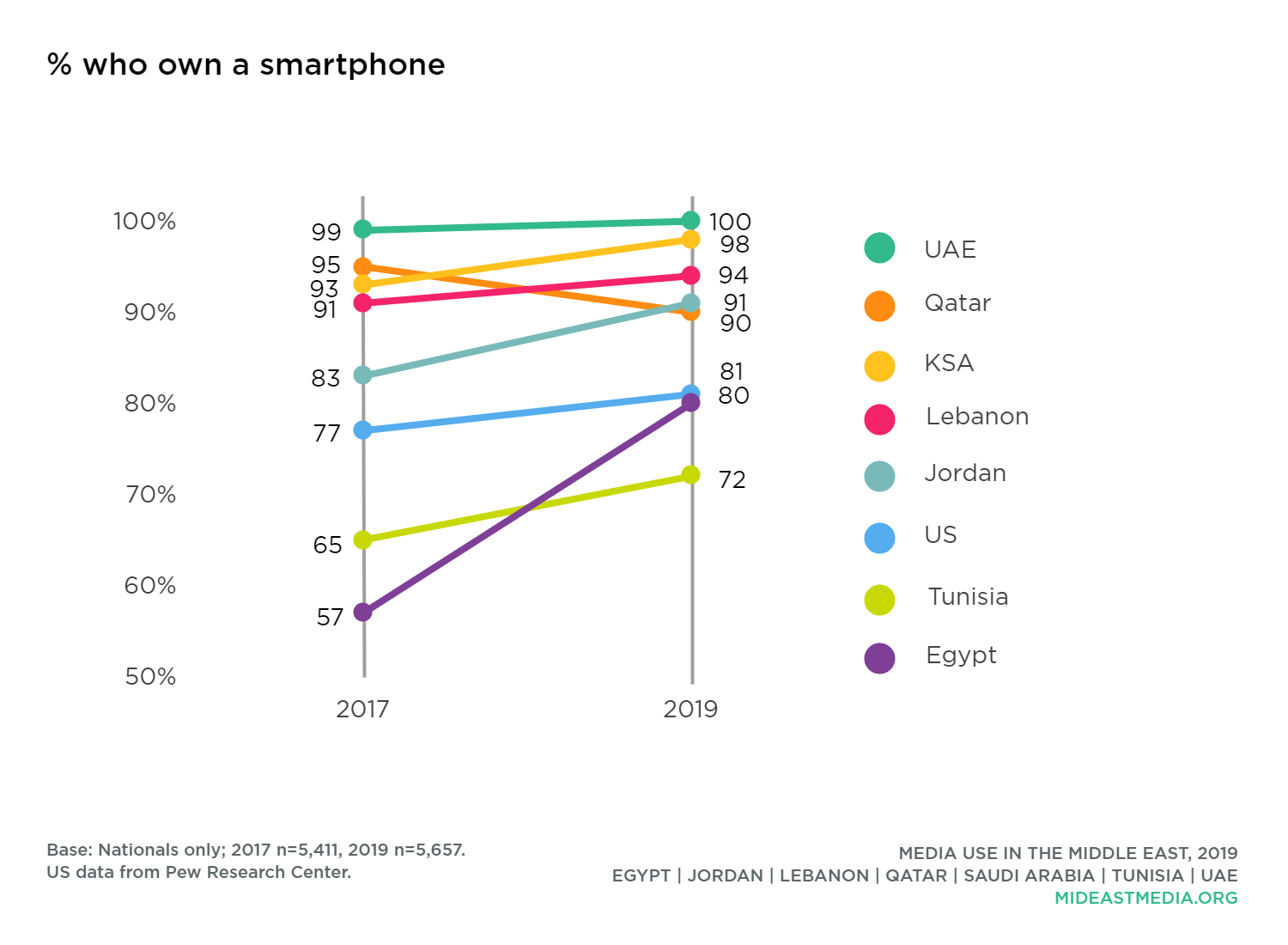
Younger and more highly-educated nationals are more likely to own a smartphone, but even seven in 10 of the oldest nationals (45+) and four in 10 of the least educated (primary or less) own one (age: 96% 18-24 year-olds, 94% 25-34 year-olds, 88% 35-44 year-olds vs. 69% 45+ year-olds; education: 42% primary or less vs. 78% intermediate, 92% secondary, 96% university or higher).
It is not surprising, then, that smartphones are the device of choice to access the internet among nearly all internet users. All other devices are used comparatively less to connect to the internet, including a sharp decline from 2015 to 2019 in accessing the internet on a computer (20 percentage point decline).
Smartwatches and smart home devices are gaining popularity, especially among those under 35 and those with at least a secondary education (use smartwatch: age: 22% 18-24 year-olds, 24% 25-34 year-olds, 14% 35-44 year-olds, 10% 45+ year-olds; education: 7% primary or less, 8% intermediate, 18% secondary, 23% university or higher; smart home device use: age: 14% 18-24 year-olds, 15% 25-34 year-olds, 12% 35-44 year-olds, 12% 45+ year-olds; education: 12% primary or less, 7% intermediate, 13% secondary, 16% university or higher).

People use the internet for a variety of purposes but none more than direct messaging. Six in 10 nationals get or send direct messages every day. Additionally, half of nationals make or receive calls online every day and post on social media every day. Three in 10 nationals post or share their own photos and videos every day, and the same proportion share content created by others. One in three looks at posts from social media influencers every day. Sharing their own photos and videos on a daily basis is less common now than in in 2015.
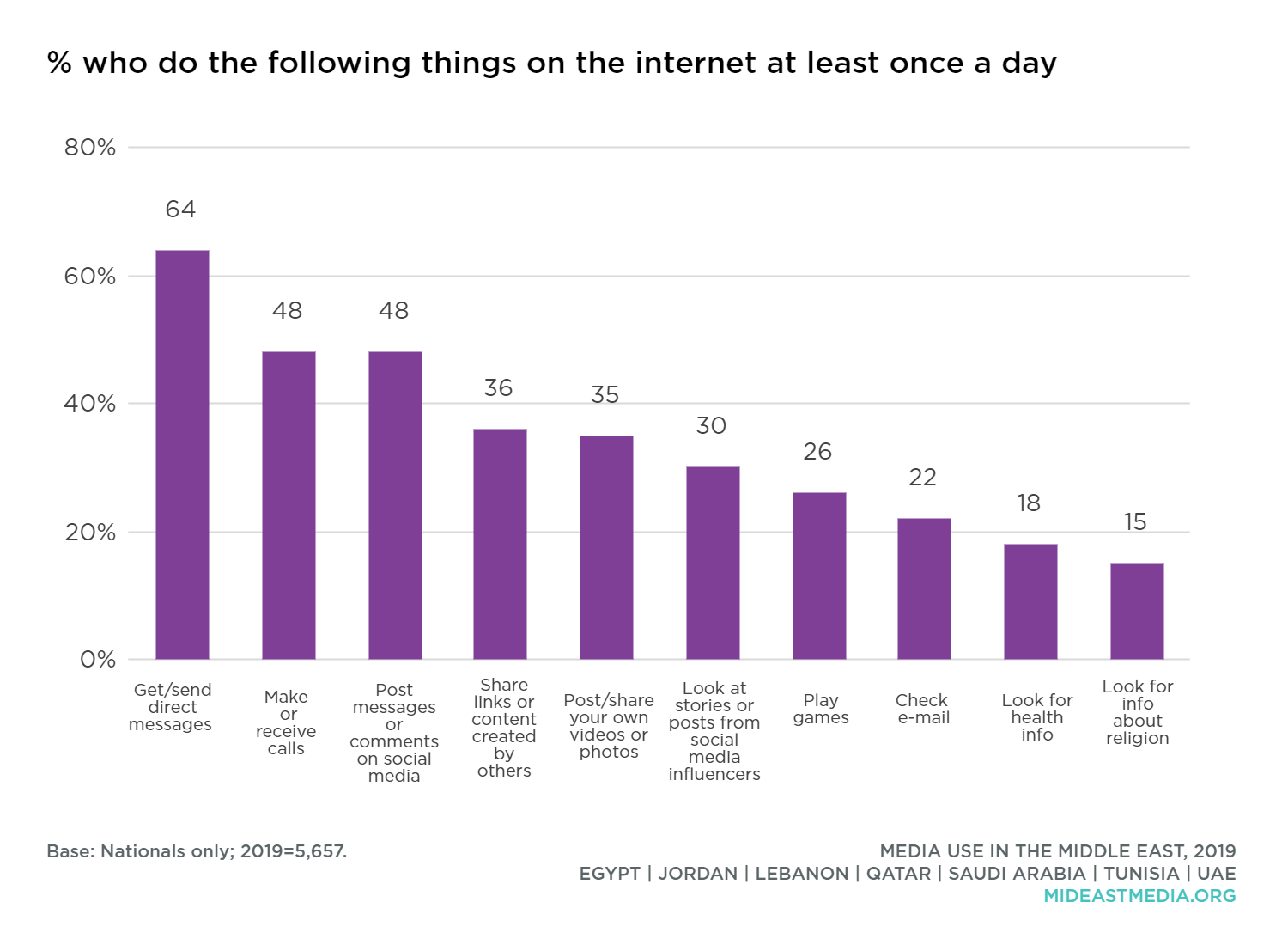
Less than 20% of nationals in each country have worked toward a degree online or participated in online job training in the prior year, with the exception of Qatar, where one-third of nationals say they participated in online training in the previous year, up from 7% who reported the same in 2017.
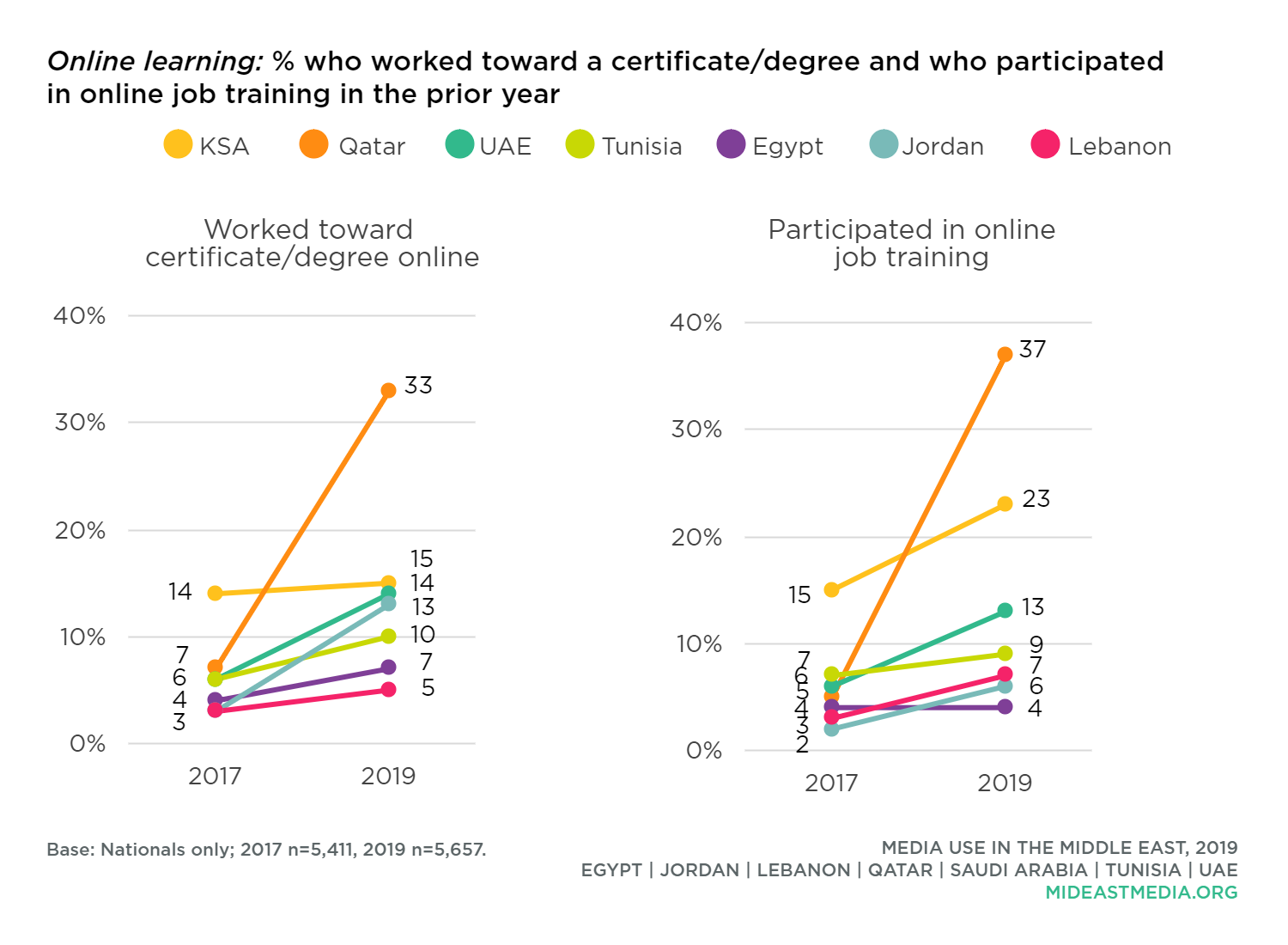
The time many nationals spend with others in-person and online has declined since 2017. On average, nationals spend four times as many hours in-person than online with family. Still, the average number of hours spent in-person with family each week decreased by seven hours since 2017. Nationals spend roughly as much time online as they do face-to-face with friends, but average weekly time with friends in person and online declined by three and four hours, respectively, compared to 2017.
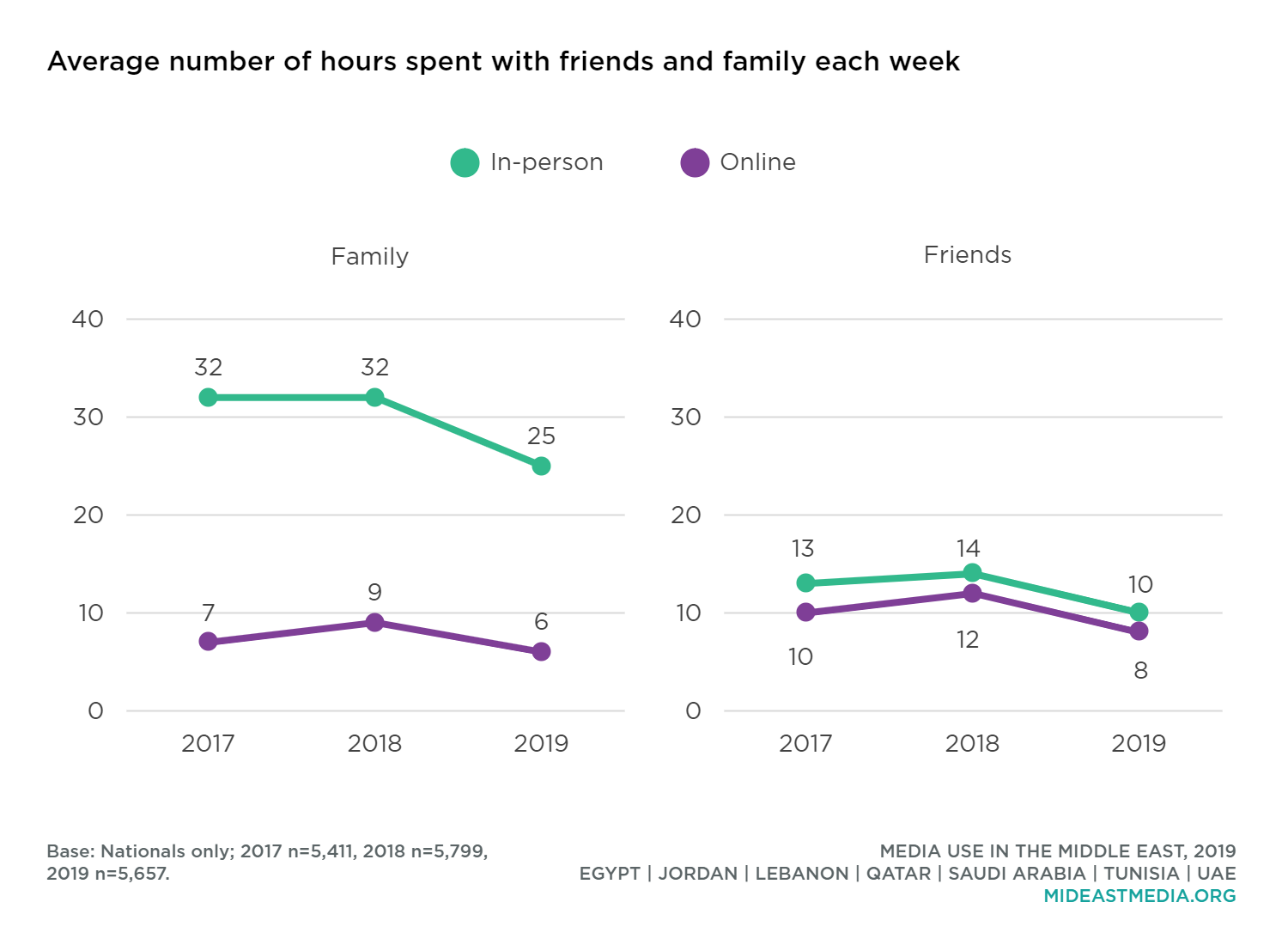
For some users, the internet increases contact with people who share their political beliefs, especially in Saudi Arabia and Qatar where four in 10 say the internet increases their contact with politically like-minded people. However, this figure has fallen steeply in several countries since the Media Use in the Middle East study began in 2013; a decline of 20 percentage points or more in Saudi Arabia, UAE, and Jordan, and 14 points in Tunisia, for finding like-minded political contacts.
Several internet users also say the internet increases their contact with people who share their religious beliefs, including nearly half of Saudis and a third of Jordanians and Qataris. There has been an increase since 2017 in internet users in Qatar, Jordan, Tunisia, and the UAE who have more contact with religiously like-minded people online.
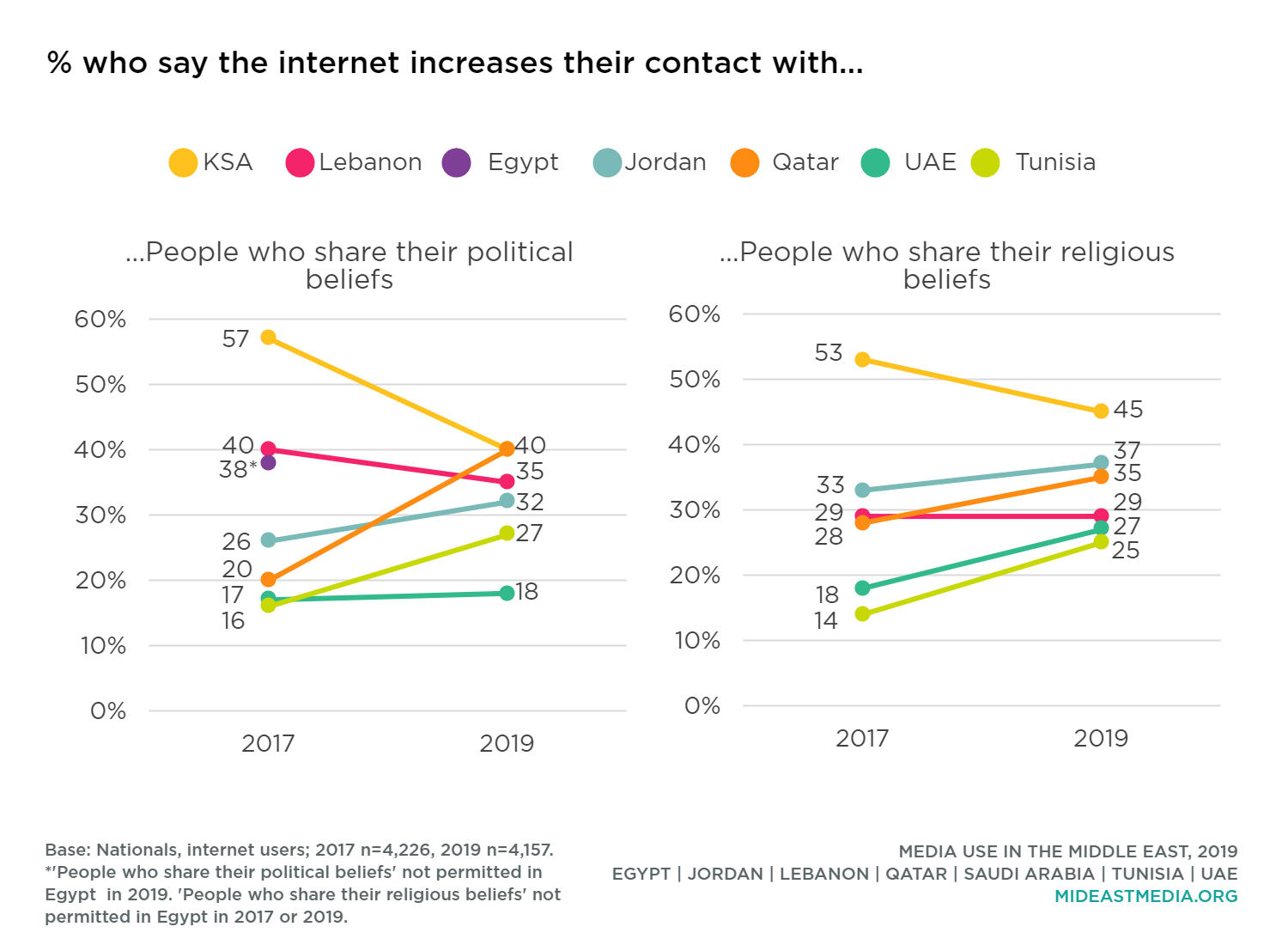
Men, more-highly educated internet users, and those who describe themselves as culturally progressive are more likely to say the internet connects them with politically like-minded others (gender: 36% men vs. 30% women; education: 22% primary or less, 27% intermediate, 34% secondary, 35% university or higher; cultural leaning: 39% progressive vs. 32% conservative).
A plurality of internet users says that the internet affords them political influence, ranging from four in 10 Saudis to one-fourth of Lebanese. This belief in online political efficacy declined sharply between 2013 and 2019—by 10 to 15 percentage points in most countries.
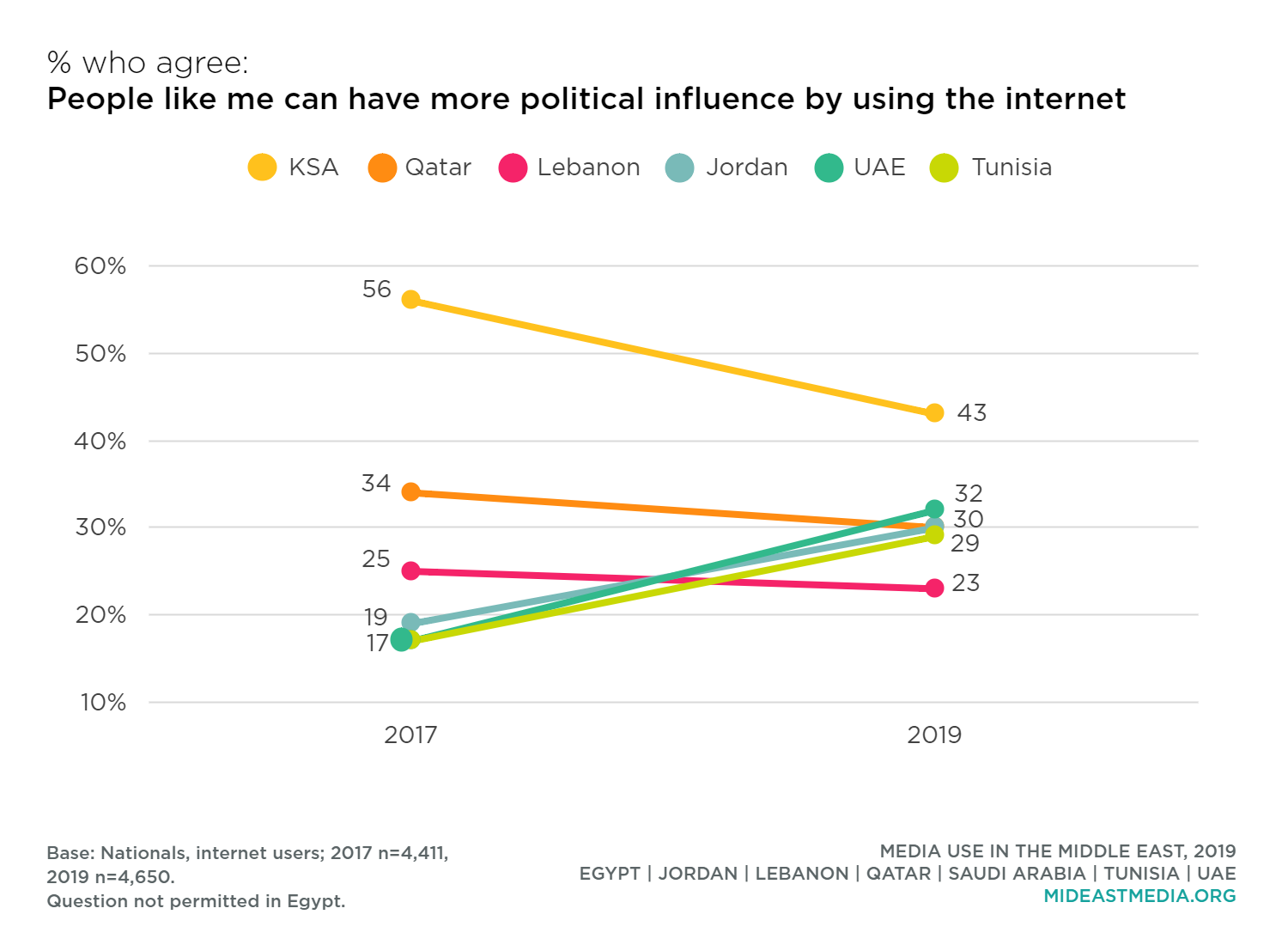
Belief in one’s personal political efficacy through the internet varies directly with increasing education and being culturally progressive as opposed to culturally conservative (education: 11% primary or less, 21% intermediate, 34% secondary, 33% university or higher; cultural leaning: 39% progressive vs. 29% conservative).